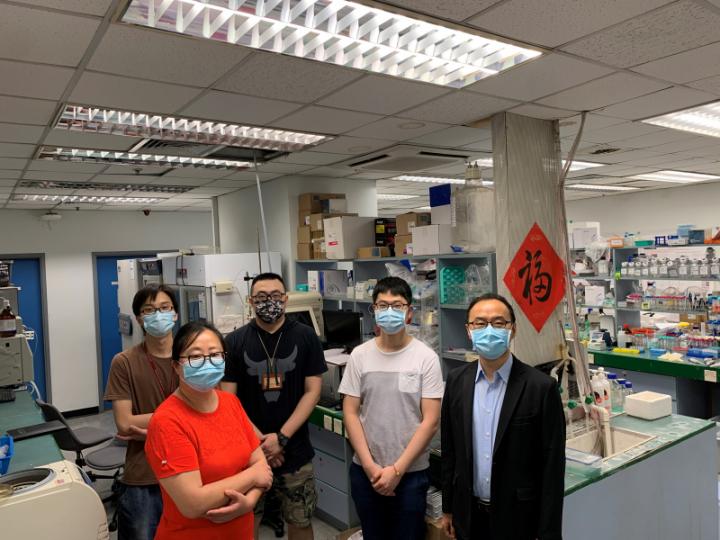
Credit: The University of Hong Kong
The research teams at the University of Hong Kong led by Professor Xuechen LI from the Research Division for Chemistry and Department of Chemistry, and Professor Yu WANG from the Department of Pharmacology and Pharmacy, reported a synthetic biotherapeutics with promising anti-tumour, insulin sensitising and hepatoprotective activities in the Journal of the American Chemical Society.
Obesity is a global pandemic associated with a significantly reduced life expectancy, it also increases the risk of type 2 diabetes, hypertension, coronary heart disease, stroke, chronic kidney disease and cancer. Adiponectin, as a protein hormone and adipokine, regulates glucose levels and improve lipid metabolism, and is a major player in the pathogenesis of obesity, insulin resistance and metabolic syndrome. Obese patients have low adiponectin levels, a condition known as hypoadiponectinemia, which contributes to increase risks of cardiovascular, metabolic diseases as well as aggressive development of malignancies with poor prognoses. Adiponectin supplementation is a long-sought-after strategy for the prevention and treatment of cancer and metabolic diseases, especially in obese patients. However, the adiponectin application in therapy has been hampered by the difficult production of human adiponectin.
The teams have been working on the development of synthetic compounds which can mimic the bioactivity of adiponectin over the past seven years. Finally, they developed an efficient synthetic approach to produce the adiponectin-derived glycopeptides that exhibit potent anti-tumour, insulin-sensitising and metabolic activities in various mouse models. The products hold greater potentials for clinical application in obesity and related medical complications, such as type 2 diabetes, hypertension, coronary heart disease, stroke, chronic kidney disease and cancer.
Professor Li and Professor Wang believe that this finding opens the door to explore the opportunity of using the synthetic glycopeptide as a potential adiponectin downsized mimic supplementary in clinical treatment. The apparent advantage of these synthetic glycopeptides is that they can be readily produced by chemical process. The two teams are continuing to apply for research grants which can support them to further evaluate the potential of these agents in preclinical studies for drug development.
###
The research paper: https:/
Images download and captions: https:/
Media Contact
Casey To
[email protected]
Original Source
https:/
Related Journal Article
http://dx.




